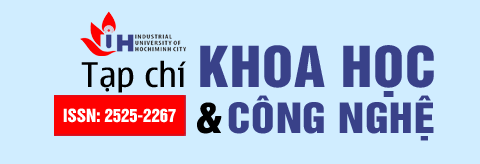OPTIMIZING PROTOCOL CONDITIONS FOR ANALYZING ACRYLAMIDE IN COFFEE BY HIGH-PERFORMANCE LIQUID CHROMATOGRAPHY-TANDEM TRIPLE QUADRUPOLE MASS SPECTROMETRY (HPLC-MS/MS) TỐI ƯU HÓA ĐIỀU KIỆN PHÂN TÍCH ĐỘC TỐ ACRYLAMIDE TRONG CÀ PHÊ
Main Article Content
Abstract
This study investigated and optimized the protocol for analyzing acrylamide toxicity in roasted coffee by liquid chromatography-tandem mass spectrometry (HPLC-MS/MS). The conditions of the equipment, mass spectrum, stationary phase, mobile phase, and sample processing procedure were investigated, and the optimal choice for the analysis of acrylamide in coffee samples was selected. The ZORBAX Eclipse C18 chromatographic column and the mobile phase HCOOH/MeCN 0.1% FA were selected with the optimized solvent program for the analysis process. Furthermore, the optimal conditions of the sample preparation protocol were evaluated such as the extraction solvent was EtOAc, the extraction temperature was 80°C, the sample cleanup column was SPE C18, and the standard solvent was MeCN/HCOOH 0.1% (1/1, v/v). The analytical protocol was then applied to analyze 42 roasted coffee samples in Ho Chi Minh City. The results showed that 71.4% of the samples were positive for acrylamide, of which 14.3% exceeded the maximum permission level according to European regulations (400 µg/kg).

